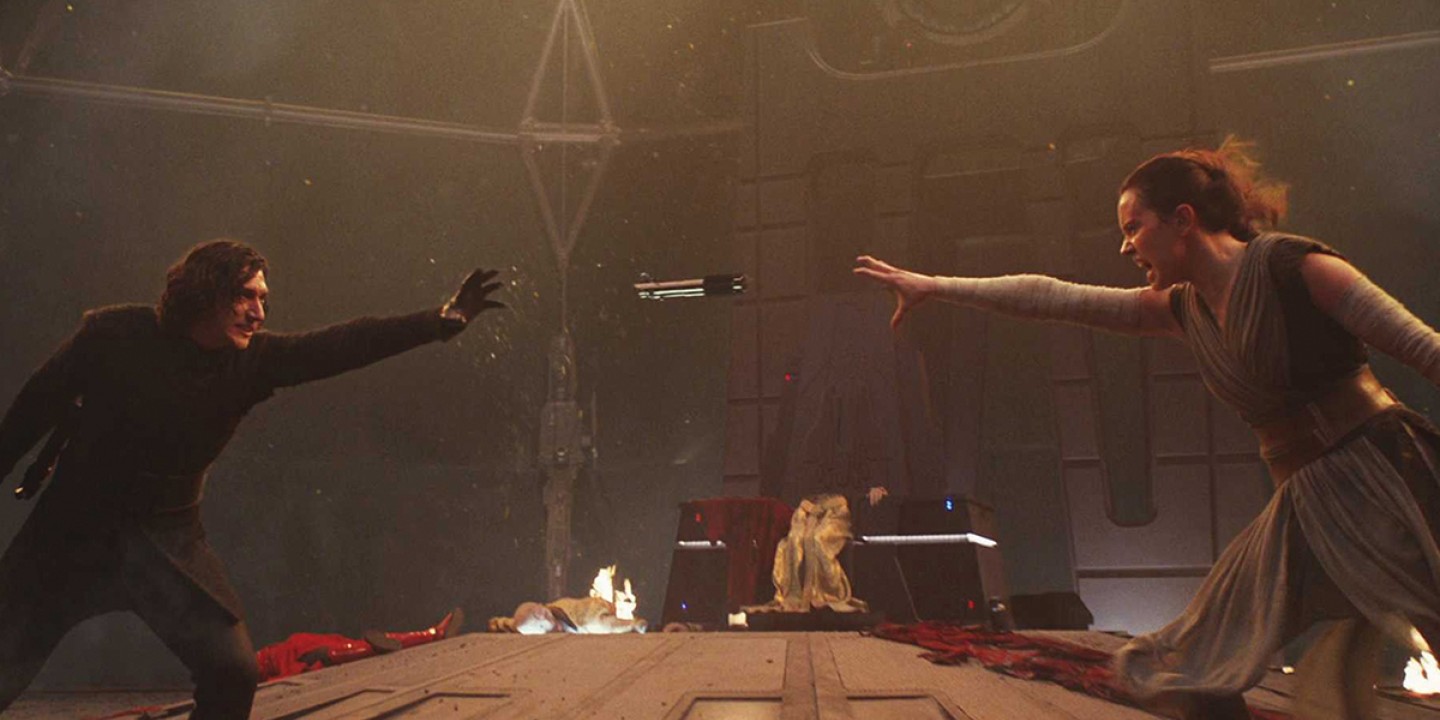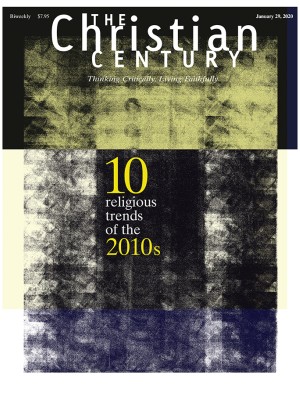How universal is the Force?
The Rise of Skywalker reduces a powerful theological symbol to a family drama.

In the ninth installment of the Star Wars saga, The Rise of Skywalker, Rey, the most recent hero, and Kylo Ren, who is both Rey’s nemesis and soul mate, transfer lightsabers in a crucial battle. Many small moments throughout the film have paved the way, materially and spiritually, for this sleight of hand, and when it happens it is both obvious and breathtaking. It is an exhilarating vision of what could have been in an alternate universe. For a moment, we see that this moment of alliance is not the result of bloodlines and superior genetics, or of there being born heroes and born villains, but the product of subtle, free human choices. For a moment, the film appears to see beyond the tired tropes and family dramas it has so relentlessly pursued. The moment doesn’t last.
The Rise of Skywalker picks up where The Last Jedi left off: Kylo Ren, son of Leia and Han Solo, nephew of Luke Skywalker, and grandson of Anakin Skywalker/Darth Vader, has killed his way to the position of Supreme Leader of the imperial First Order. Rey, who shares a mysterious bond with Kylo that allows them to communicate across time and space, is trying to complete her Jedi training and race Kylo to the hidden planet of the Sith.
Read our latest issue or browse back issues.
As in all Star Wars movies, a small band of poorly resourced resistance fighters tries to defeat the imperial power against crushing odds and threats of impossible weapons. As Rey and her comrades zip across the galaxy, they meet new allies and many, many old characters, who show up for final goodbyes. They outwit foes, attempt daring rescues, and face near-certain destruction with witty dialogue and sincere camaraderie. They are a compelling band of friends with whom to face the end of the world. But the real focus of the movie is the relationship between Rey and Kylo.
The series has always assumed that how we wrestle with the intimate inheritance of our families is part of how we wrestle with larger forces of good and evil. Kylo’s struggle with his family legacy is the summation of the Skywalker saga: he is trying to live up to both Luke Skywalker and Darth Vader; it’s no wonder he is an angsty mess. For over six years fans have speculated about Rey’s parentage, with many hoping she was biologically related to the famous characters in the series. The Last Jedi delighted some fans (including this one) and infuriated others by cutting this debate off at the knees: Rey was not genetically connected to the heroes of the old story. She was instead proof that the Force does not belong to one special family but is available to everyone, manifesting itself in unlikely corners of the universe.
With her anonymity came the sense that the saga that started with Luke would expand beyond that drama. New darkness would rise, but so would new light. And if Luke was right in The Last Jedi, light would adapt and expand not just to defeat the darkness but to offer truly different models of power and love.
The potential for that model is there in the bond between Rey and Kylo, which disrupts Manichaean dichotomies of light versus dark. Their attraction to each other embodies themes of forgiveness and compassion that have guided the saga since Luke set out to redeem his father in The Return of the Jedi. It is hard to watch The Rise of Skywalker without thinking how much further the moviemakers could have expanded the quasi-theology of the Force if they hadn’t domesticated it into a family drama. What if Rey and Kylo weren’t just trapped in the traumas of their parents and grandparents but actually represented something new in the universe? Their exchange of lightsabers might have marked the rise of a new, collaborative use of the Force.
It turns out there isn’t new darkness or new light—just the same old battle on franchise repeat. The galaxy is saved, once again, by a lone hero who has finally learned her rightful place in a very closed circle.
Fortunately, the Star Wars universe isn’t only in the hands of the moviemakers. In the many years fans have been waiting for the conclusion to this saga, it has expanded in stranger, more interesting directions in fan fiction and spin-off story lines, proving its staying power as a meaningful mythology. This movie is littered as well with hints of characters whose struggles against the empire don’t depend on bloodlines or inheritance. Any one of those stories would bring me back to the theater. Let’s just hope Rey decides to follow the ancient Jedi way and never has children. Maybe then we can get beyond the Skywalkers and train our eyes on the rest of the galaxy.
A version of this article appears in the print edition under the title “How universal is the Force?”







